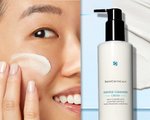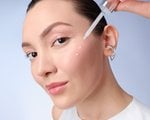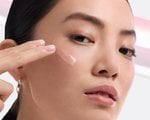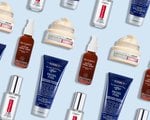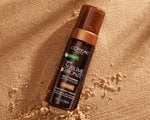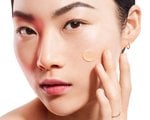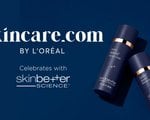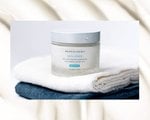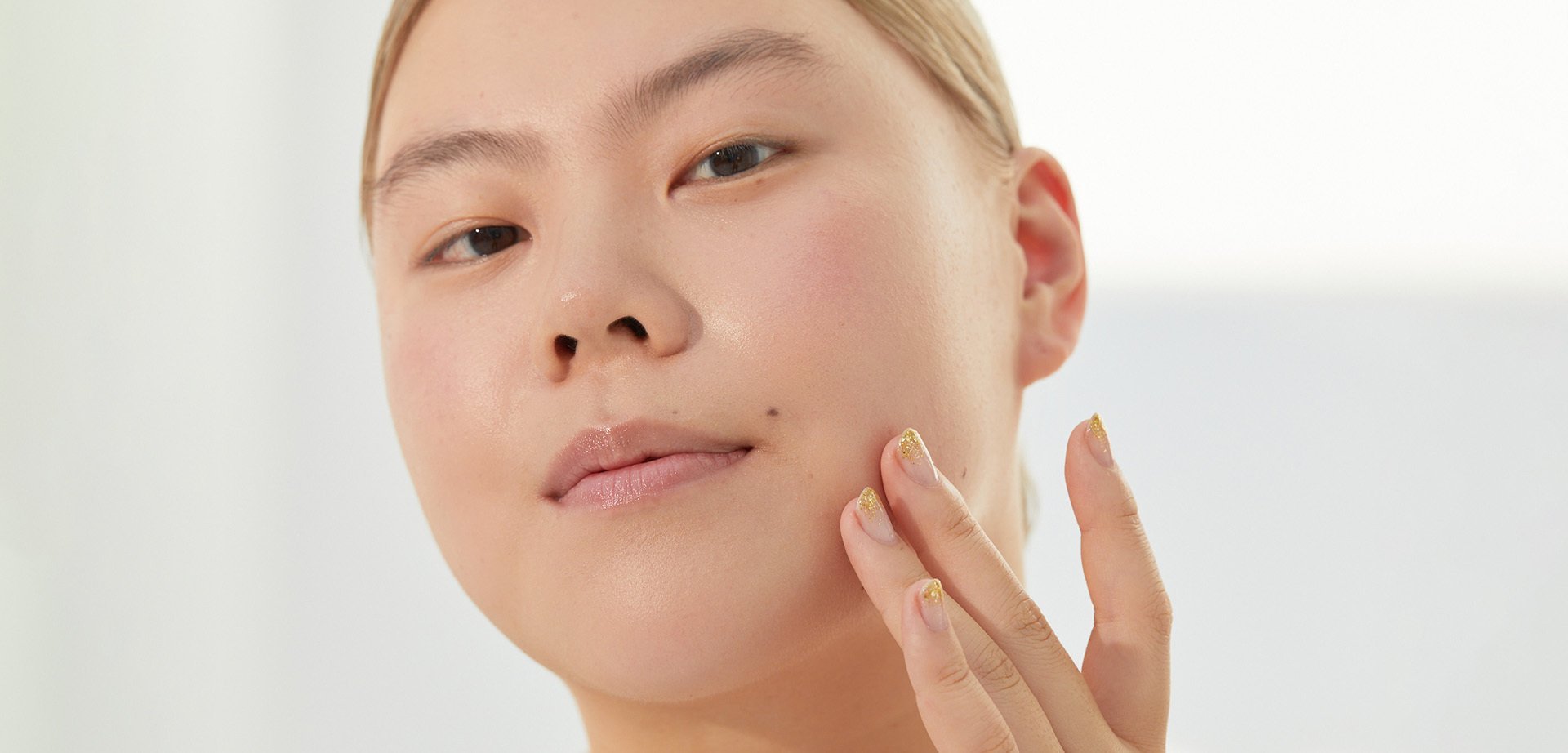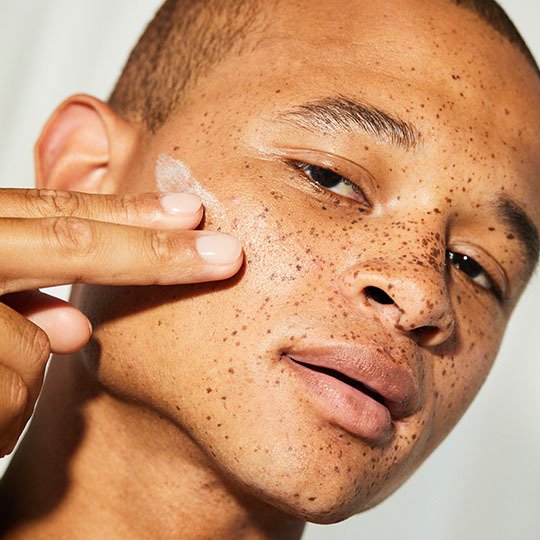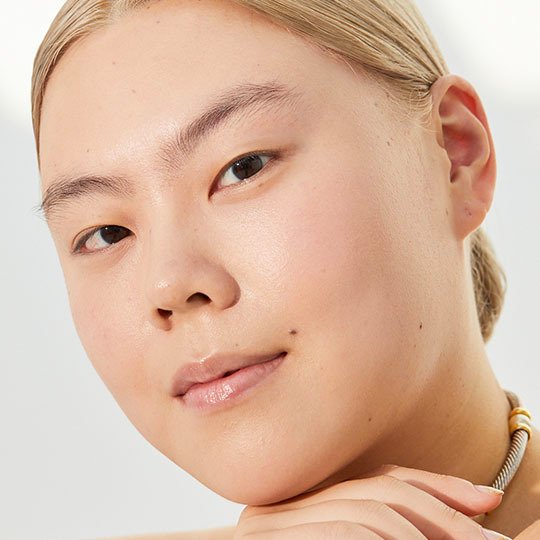What Causes Hyperpigmentation? Plus, How to Address It
September 26, 2023
What Is Hyperpigmentation?
Before we can get into causes and treatment options for hyperpigmentation, it’s important to understand what exactly it is. “Hyperpigmentation is skin discoloration that may occur as areas, patches, spots or skin lesions of a tan, reddish-brown to gray color anywhere on the skin,” says board-certified plastic surgeon, SkinCeuticals ambassador and Skincare.com consultant Dr. Peter Schmid. “Involved areas become visible lesions which stand out in contrast to the surrounding skin.”
According to Dr. Schmid, hyperpigmentation is an incredibly common skin concern and it can occur on all types of skin. The opposite of hyperpigmentation is what’s known as “vitiligo,” which involves patches of lighter skin as opposed to darker.
What Causes Hyperpigmentation?
So what causes hyperpigmentation in the first place? “Hyperpigmentation occurs when the pigment-producing cells of the skin, melanocytes, are stimulated to produce or accumulate excess pigmentation,” Dr. Schmid says. A melanocyte is a specialized skin cell which produces melanin, the pigment that gives skin its color. So when melanin production goes into overdrive, it can cause any sort of pigmentation — from age spots (a.k.a. sun spots) to melasma to sunburns — to appear all over the body or in concentrated areas.
Cause 1: Hormones
According to The American Academy of Family Physicians (AAFP), hormones can stimulate the production of melanin, which, in turn, can lead to hyperpigmentation. The AAFP also details how hormonal changes caused by oral contraceptives and pregnancy can lead to a type of hyperpigmentation called melasma. Melasma typically occurs as patches on the face and is commonly experienced during pregnancy. To learn more about melasma, click here.
Cause 2: Genetics
As detailed by the American Academy of Dermatology (AAD), melasma is more common in individuals with darker skin tones because they have more active melanocytes. The AAD notes that those with a blood relative who has experienced melasma are more likely to experience it, as well.
Cause 3: Skin Trauma
Hyperpigmentation can also occur in the wake of damage to the skin. The American Osteopathic College of Dermatology notes that this can be the result of skin diseases and acne, as well as cuts, burns, infections and other injuries. “Often,excessive pigmentation accumulates at sites of acne, rashes, dermatitis, abrasions or trauma called post-inflammatory hyperpigmentation (PIH),” says Dr. Schmid. PIH can occur in all skin types and tones, but it especially affects people with darker skin tones.
Cause 4: Sun Damage
One easily-preventable cause of hyperpigmentation is overexposure to the sun’s harmful UV rays, resulting in sun damage to the skin. Freckles, age spots and other types of hyperpigmentation can become darker when exposed to the sun. The bottom line? Everyone should help protect their skin all year round by wearing a broad-spectrum sunscreen each day and taking other sun protection measures.
Cause 5: Aging
Hyperpigmentation of the skin can also develop due to skin’s natural aging process. This is why many people with mature skin experience hyperpigmentation. As the body ages, the skin’s outermost layer — the epidermis — gets thinner and becomes more susceptible to the influence of external factors. This includes sun damage. If you spent a lot of time in the sun in your youth and beyond, you may notice a higher prevalence of dark spots as you age.
How to Get Rid of Hyperpigmentation
While you may not be able to completely get rid of hyperpigmentation with an easy fix, there are measures you can take to help reduce their appearance. “Many types of hyperpigmentation resolve over time, but it can be dramatically improved by proactive skin care practices,” Dr. Schmid says. Take a peek below to see which steps you can take to help reduce the appearance of hyperpigmentation.
Tip 1: Apply Sunscreen Daily
“It is crucial to cover all areas of hyperpigmentation (and the skin in general) with daily SPF 50 sunscreen,” Dr. Schmid says. For hyperpigmentation in particular, he suggests using the SkinCeuticals Physical Fusion UV Defense SPF 50 sunscreen every day. He also recommends opting to wear a hat and UV protective clothing before heading outdoors.
Tip 2: Brighten With Antioxidants
Since hyperpigmentation is essentially just a darkening of the skin, one of the ways you can address it is by brightening the look of your skin. Some of the best ways to do this? Try to find skin care products that are formulated with either vitamin C, alpha-hydroxy acids, or retinol. For this, Dr. Schmid recommends either SkinCeuticals C E Ferulic or SkinCeuticals Phloretin CF, which are both powerful antioxidant serums formulated with vitamin C .
Tip 3: Consider Adding Retinol to Your Skincare Routine
An active form of vitamin A, retinol is one of the most popular anti-aging ingredients out there and it is available without a prescription. Some of the benefits of using retinol include reducing the appearance of wrinkles and fine lines, as well as evening out your skin tone when used consistently over time. Retinol can even be paired with other skincare ingredients such as vitamin C or hyaluronic acid to hydrate, brighten and level up your anti-aging routine all at once.
One important thing to keep in mind whenever you use products with retinol is to let your skin build up a tolerance to the ingredient. Since it’s powerful, it may take some time for your skin to get used to it and you don’t want to experience a negative reaction. Depending on where you are in your retinol journey, consider the SkinCeuticals Retinol 0.3, SkinCeuticals Retinol 0.5, or SkinCeuticals Retinol 1.0.
Editor’s note: When using retinol in your skincare routine, it’s even more crucial to pair it with broad-spectrum sunscreen in the daytime, since retinol can cause skin sensitivity to sunlight.
How to Prevent Hyperpigmentation
Since we’re firm believers that a prevention plan is better than a treatment plan when it comes to skincare issues, we’re sharing how to help reduce your risk of developing dark spots on your skin’s surface — and it all comes down to one word: Sunscreen.
Applying broad-spectrum sunscreen with SPF 30 or higher each day prior to heading outdoors (and reapplying at least every two hours) is one of the most foolproof ways to safeguard your skin against premature aging and dark spots. To take things a step further, pair your sunscreen use with additional protection measures such as seeking shade, wearing protective clothing and avoiding peak sun hours.
The Best Skincare Products for Hyperpigmentation
SkinCeuticals Physical Fusion UV Defense SPF 50
As we established above, wearing a broad-spectrum sunscreen every single day is one of the best prevention and treatment methods when it comes to hyperpigmentation. The SkinCeuticals Physical Fusion UV Defense SPF 50 is one of our favorites because it has a weightless fluid texture that seamlessly blends into the skin without leaving behind any greasy residue — a major sunscreen pet peeve. This formula has a sheer, tinted finish to give your skin a radiant glow and it’s water-resistant for up to 40 minutes.

IT Cosmetics Bye Bye Dark Spots Niacinamide Serum
ICYMI: Niacinamide is a popular and effective skincare ingredient for targeting dark spots. Tackle your hyperpigmentation by adding a niacinamide serum, like the IT Cosmetics Bye Bye Dark Spots Niacinamide Serum, into your skincare routine. Also formulated with ethyl vitamin C, this brightening serum helps fade age spots, melasma and other types of skin discoloration for a more even-toned complexion. For the best results, apply four to five drops to your face and neck after cleansing, then follow it up with your favorite moisturizer and SPF.

L’Oréal Paris Bright Reveal 12% [Niacinamide + Amino Sulfonic + Ferulic Acid] Dark Spot Serum
Whether you’re attempting to fade sun spots, age spots or post-acne marks, the L’Oréal Paris Bright Reveal 12% [Niacinamide + Amino Sulfonic + Ferulic Acid] Dark Spot Serum is sure to get the job done. Niacinamide in the formula helps to visibly reduce the appearance of dark spots, while ferulic acid and amino sulfonic work to gently exfoliate and brighten the skin. Plus, this serum is suitable for all skin tones and types, including sensitive skin.
![L’Oréal Paris Bright Reveal 12% [Niacinamide + Amino Sulfonic + Ferulic Acid] Dark Spot Serum](/-/media/project/loreal/brand-sites/sdc/americas/us/articles/2023/september/26-dark-spots-101-what-causes-hyperpigmentation/lop-bright-reveal-dark-spot-serum-sdc-092523.jpg?cx=0.5&cy=0.5&cw=705&ch=705&blr=False&hash=5631E223234109170DA7966BB9F57806)
Kiehl’s Truly Targeted Acne-Clearing Pimple Patch With Salicylic Acid
If post-acne marks are the main source of your hyperpigmentation, check out the Kiehl’s Truly Targeted Acne-Clearing Pimple Patch With Salicylic Acid. This innovative breakout-clearing solution is an acne spot treatment that’s formulated with 4% niacinamide to help fade post-blemish dark spots. A liquid version of a pimple patch, this spot treatment also helps shrink pimples. The best part? It’s totally invisible and layers well with makeup for daytime use.

L’Oréal Paris Bright Reveal Broad Spectrum SPF 50 Daily UV Lotion
The L’Oréal Paris Bright Reveal Broad Spectrum SPF 50 Daily UV Lotion is another lightweight face sunscreen we love. Enriched with vitamin C and vitamin E, this sheer sunscreen helps defend against environmental skin damage caused by free radicals. Use this sunscreen as the final step in your skincare routine after your moisturizer for radiant, protected skin.

SkinCeuticals Retinol 0.3
Thinking of adding a retinoid to your skincare routine? The SkinCeuticals Retinol 0.3 is the brand’s lowest-concentration retinol and therefore is an ideal beginner retinol cream. (Remember: You’ll want to ease into using a retinol if you’re new to the ingredient to avoid irritating your skin.) This nighttime treatment works to address signs of aging like fine lines, wrinkles, pores and, of course, discoloration.

Glossier Super Glow Vitamin C + Magnesium Serum
The Glossier Super Glow Vitamin C + Magnesium Serum is a brightening serum that works to deliver a more even, illuminated complexion. Not only does this serum help reduce dark spots, but it also works to replenish moisture. Plus, it gets bonus points for its adorable peach-hued packaging.

